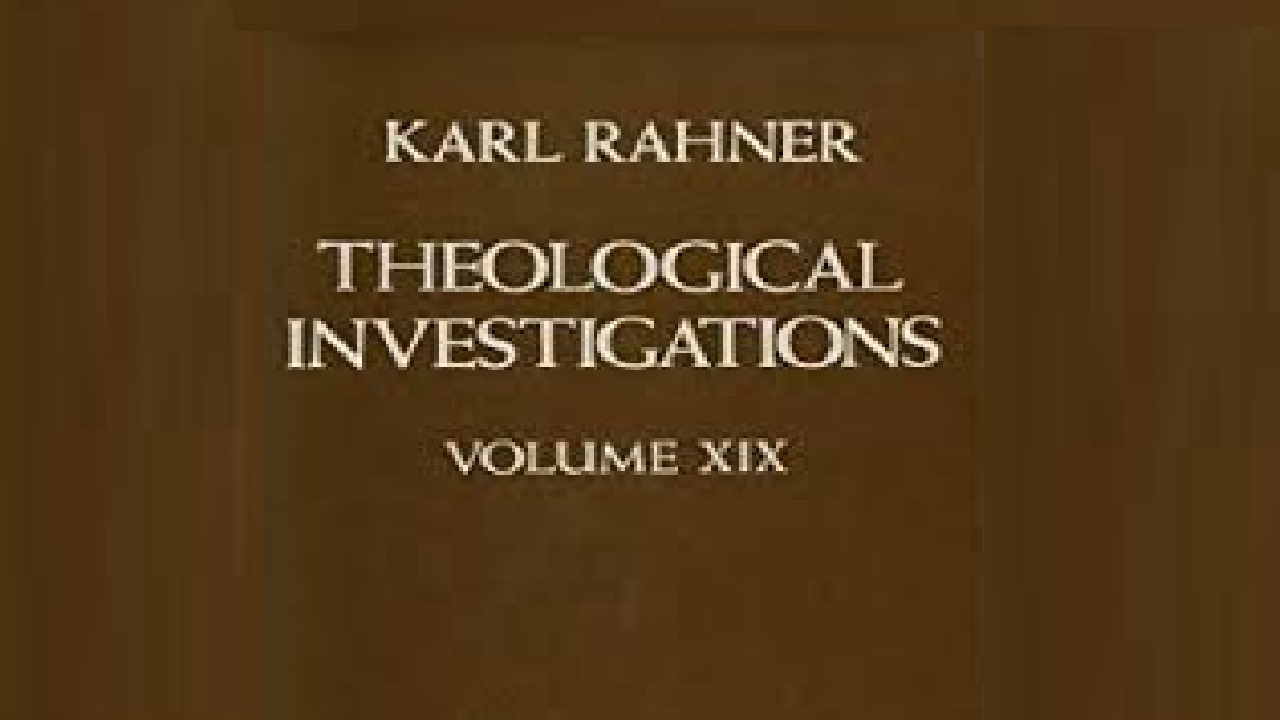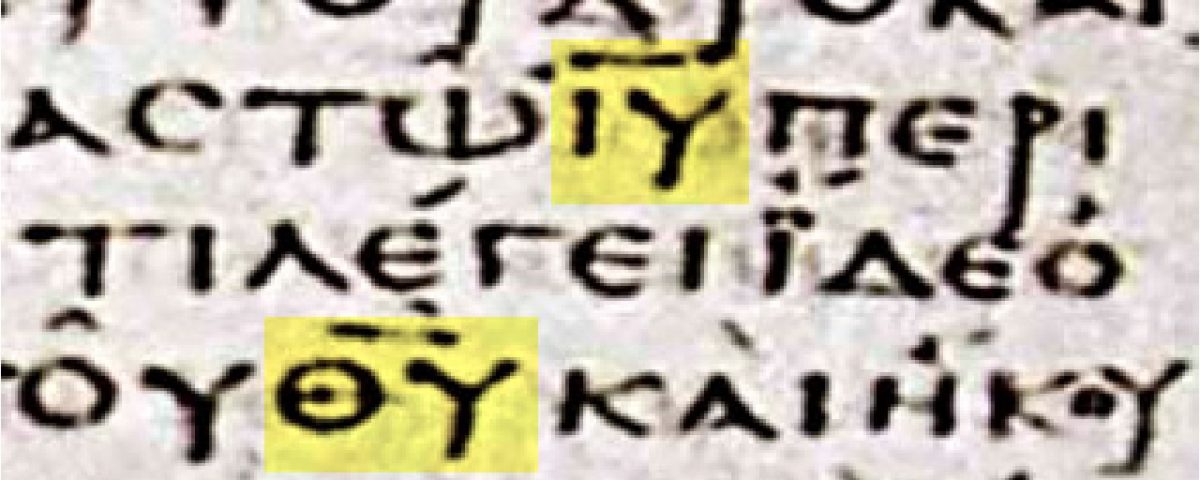
Theos in the New Testament
February 2, 2019
The Theology of Isaac Newton’s General Scholium to the Principia
February 23, 2019Jesus is God “proof texts”

What They’re Not Telling You!
A half truth is a whole lie. ~Yiddish Proverb
A massive deception continues to be perpetrated on the public by Trinitarian apologists who claim the New Testament time and again calls Jesus “god.”
It’s bad enough half-truths are lies but those are the best lies!
First, any student of the Bible will quickly see that the word “god” is a relative term used for others apart from the Father (who, by the way, Jesus calls the “only true God,” John 17.3). So although Jesus is called “god,” [see my “Human gods” article] it’s obviously not meant to be understood in the ultimate, absolute sense of the word. But most importantly, what they’re not telling you is the fact that in many of the so-called Jesus is God “proof-texts,” we find either a textual problem or corruption to the text! These are indisputable facts that many noted orthodox scholars have had to concede over the centuries. Yet, more often than not, they have buried the crucial evidence in tedious, tiring prose. Add to this those prominent voices throughout history that have been silenced by the sometimes violent avalanche of orthodox opposition.
One of the first to experience this was the noted Dutch humanist Desiderius Erasmus (1466-1536) most famous for exposing the so-called Johannine Comma corruption in 1 John 5:7-8. In his Apology against the Patchworks of one Alberto Pio he asks whether his Catholic Church has “united now with the aid of Aristotle?” His answer, a resounding “No, because nowhere in Scripture is Christ called ‘true God.’ If this had been the case, the Arians would have surrendered.” And he came to learn that anyone who reads the Son in John 1:1 “gives the phrase a heretical meaning. It is no less absurd to say ‘the son is the father’…Granted that ‘God’ refers to the Father…Likewise Paul says ‘God and Father’ [Gal 1.4; Phil 4.20], pointing out one Person who is both God and the father of our Lord Jesus Christ.”[1]
And then there’s Isaac Newton whose fame as “the greatest scientific genius the world has known”[2] hides his true passion and life’s work of poring over and scouring tons of biblical manuscripts. The reason was his fear of not only losing his prestigious position at Cambridge but also of being completely cut off from 17th century English life![3] In private letters sent to philosopher John Locke, another closet anti-Trinitarian “heretic,” he details findings of more than 20 passages worth of corruptions and textual problems where Jesus is called “God.”[4]
Of note during this period is the little-known Swiss Protestant Johann Jakob Wettstein (1693-1754). His motto was that “since with the same eyes we read both sacred books and edicts of a ruler, both ancient and modern books, therefore the same rules should be used in the interpretation of the former, which we use in the understanding of the latter.”[5] According to Ehrman’s Whose Word Is It? (2006) Jakob was a brilliant young student who as a teenager chose to devote his life to the study of biblical manuscripts. As a result, he was one of the first to expose orthodox corruptions like 1 Timothy 3:16 where the word “He” was changed to “God was manifest in the flesh.” And as he “continued his investigations, he found other passages typically used to affirm the doctrine of the divinity of Christ that in fact represented textual problems; when these problems are resolved on text-criticial grounds, in most instances references to Jesus’ divinity are taken away.” Eventually, his contemporaries charged him with being a proponent of Socinianism and he was eventually removed from his post and banished from Basel, his home town.
Coming into the 20th century we find the noted Scottish theologian, Professor of Divinity and Biblical Criticism at the University of Glasgow, William Barclay, who admitted that “on almost every occasion in the NT on which Jesus seems to be called ‘God’ there’s a problem either of textual criticism or of translation. In almost every case we have to discuss which of two readings is to be accepted or which of two possible translations is to be accepted.”[6]
Today’s premier textual critic Dr. Daniel Wallace, founder and director of the Center for the Study of New Testament Manuscripts, adds that “few today would take issue with Rudolf Bultmann’s oft-quoted line that ‘[i]n describing Christ as ‘God’ the NT still exercises great restraint.’”[7]
And finally Dr. Murray Harris in his well-known and widely cited Jesus as God on page 177 says:
“Any NT use of theos as a christological title will produce certain linguistic anomalies and ambiguities, for in all strands of the NT theos generally signifies the Father….It’s a curious fact that each of the [disputed god texts] contains an interpretative problem of some description. Actually, most contain 2 or 3.”
Dr. Murray goes on to list “problems” that involve: punctuation (John 1:1c; Rom 9:5); textual, grammatical issues (John 1:18; 20:28; 2 Peter 1:1; 2Thess 1:12; Titus 2:13; 1Jn 5:20) and context (Heb. 1:8-9).
He continues:
“Also significant is the fact that in those cases in which o theos certainly or probably refers to Jesus, the usage is usually accompanied by a statement in the immediate context that makes an explicit personal distinction between the Son and God the Father.”
[1] Response to Lee’s Annotations.
[2] https://www.christianitytoday.com/history/issues/issue-30/faith-behind-famous-isaac-newton.html
[3] Newton’s successor at Cambridge, noted theologian, historian, and mathematician William Whiston, himself shared Newton’s anti-Trinitarian beliefs that Jesus was never clearly called “God!”
[4] For more see: http://www.newtonproject.ox.ac.uk/ and “God of Gods, and Lord of Lords”: The Theology of Isaac Newton’s General Scholium to the Principia by Newtonian expert Dr. Stephen Snobelen.
[5] “De interpretation Novi Testamenti”, in dem, Novum Testamentum Graecum 2.875.
[6] Jesus As They Saw Him, NT Interpretations of Jesus, p 21.
[7] Granville Sharp’s Canon and Its Kin: Semantics and Significance, 2009, p 27. Dr. Brian J. Wright (Ridley College, Melbourne, Australia), one of his “former interns,” alumni and close “colleague” adds that “textual variants exist in every potential passage where Jesus is explicitly referred to as θεός.” https://bible.org/article/jesus-%CE%B8%CE%B5%CF%8C%CF%82-god-textual-examination

